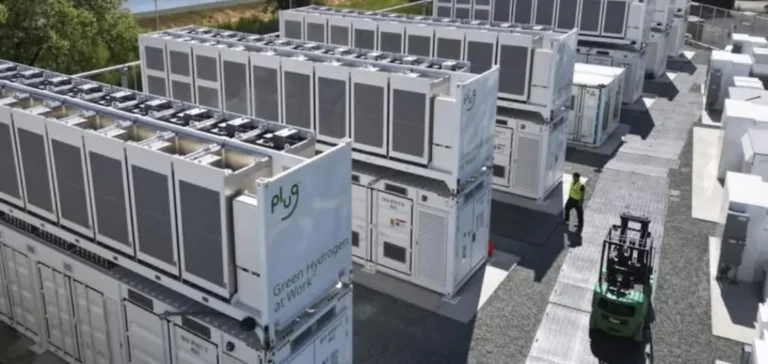Plug Power Inc. has signed a binding agreement with Allied Biofuels FE LLC for the supply of up to 2 gigawatts (GW) of GenEco proton exchange membrane (PEM) electrolyzer systems for a major electro-sustainable aviation fuel (eSAF) project in Uzbekistan. This commitment is part of a broader set of strategic collaborations between Plug Power and the Allied group, which is already active through the 3 GW project led by Allied Green Ammonia in Australia.
Allied Biofuels’ site in Uzbekistan is designed to produce sustainable aviation fuel (SAF), eSAF, and green diesel. Located at a key logistical hub for global sustainable fuel markets, the facility will use Plug Power’s technology to power its entire production process. The final investment decision is expected in the fourth quarter of 2026, according to the two companies.
Strengthening Plug Power’s presence in Central Asia
The agreement was signed in Australia during a visit by Plug Power Chief Executive Officer Andy Marsh, who met with regional partners to explore new opportunities in hydrogen and liquid fuels. The deal represents one of the largest electrolyzer supply contracts announced in 2025 and confirms Plug Power’s strategy to position itself as a central player in large-scale utility hydrogen projects.
The combined 5 GW capacity, spread across projects in Australia and Uzbekistan, reinforces Plug Power’s role as a key provider of electrolyzer solutions for industrial applications in the synthetic fuels sector. The Uzbek site will mark the first commercial deployment of this scale in the region.
Continued expansion in Asian markets
Alongside this agreement, Plug Power is continuing to grow its operations in Asia, including in South Korea, India, and Japan, where its technologies are being deployed in hydrogen production, power generation, and industrial applications. The company is targeting these markets to meet growing demand for hydrogen-based energy solutions.
Plug Power has already established partnerships for the supply of fuel cells and electrolyzers in several strategic regions. Its ongoing expansion aims to address equipment needs for alternative fuel production and industrial decarbonisation, particularly in aviation and heavy transport segments.






















